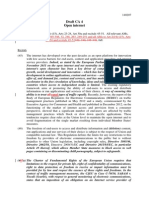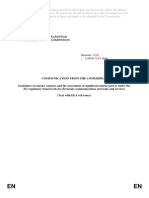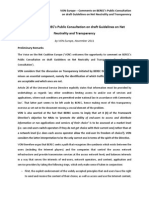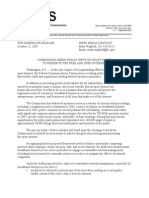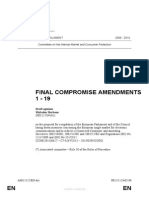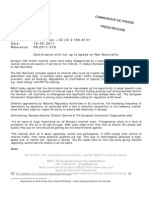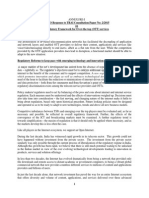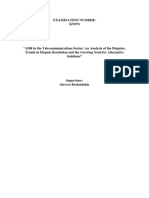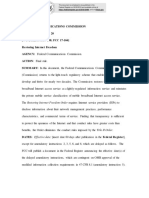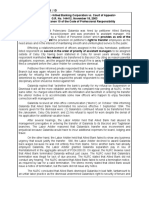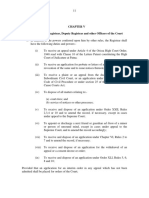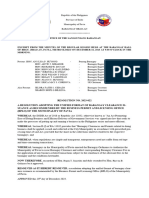0% found this document useful (0 votes)
8 views9 pagesReader 1
The document outlines the EU Regulation 2015/2120, which establishes rules for open internet access, ensuring non-discriminatory treatment of internet traffic and end-user rights. It includes provisions on traffic management, transparency measures, and enforcement by national regulatory authorities. The document also discusses a legal case involving Telenor's internet service packages that raised questions about compliance with the regulation's requirements for equal treatment of internet traffic.
Uploaded by
amelias11223322111Copyright
© © All Rights Reserved
We take content rights seriously. If you suspect this is your content, claim it here.
Available Formats
Download as PDF, TXT or read online on Scribd
0% found this document useful (0 votes)
8 views9 pagesReader 1
The document outlines the EU Regulation 2015/2120, which establishes rules for open internet access, ensuring non-discriminatory treatment of internet traffic and end-user rights. It includes provisions on traffic management, transparency measures, and enforcement by national regulatory authorities. The document also discusses a legal case involving Telenor's internet service packages that raised questions about compliance with the regulation's requirements for equal treatment of internet traffic.
Uploaded by
amelias11223322111Copyright
© © All Rights Reserved
We take content rights seriously. If you suspect this is your content, claim it here.
Available Formats
Download as PDF, TXT or read online on Scribd
/ 9

